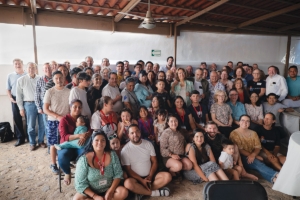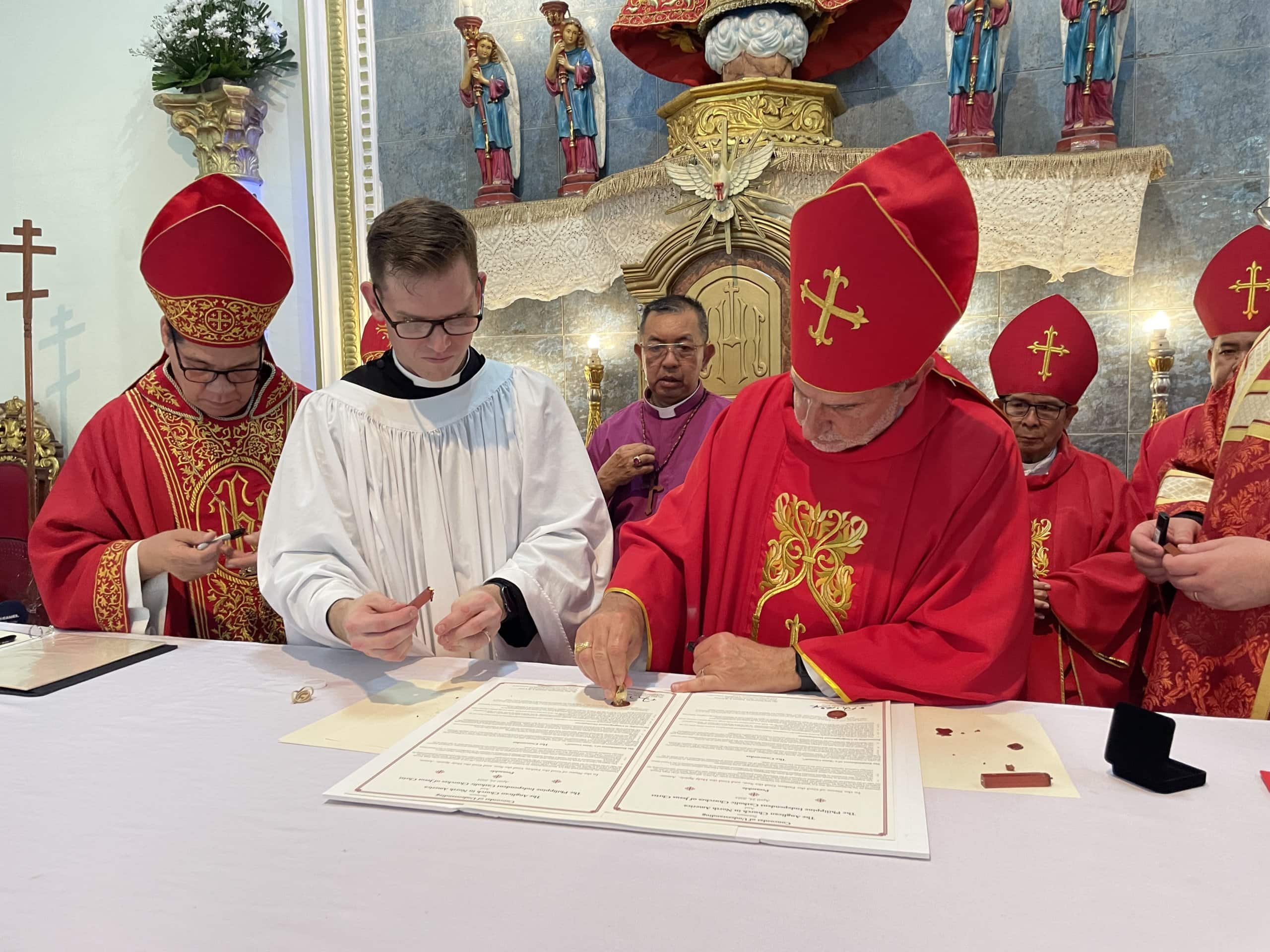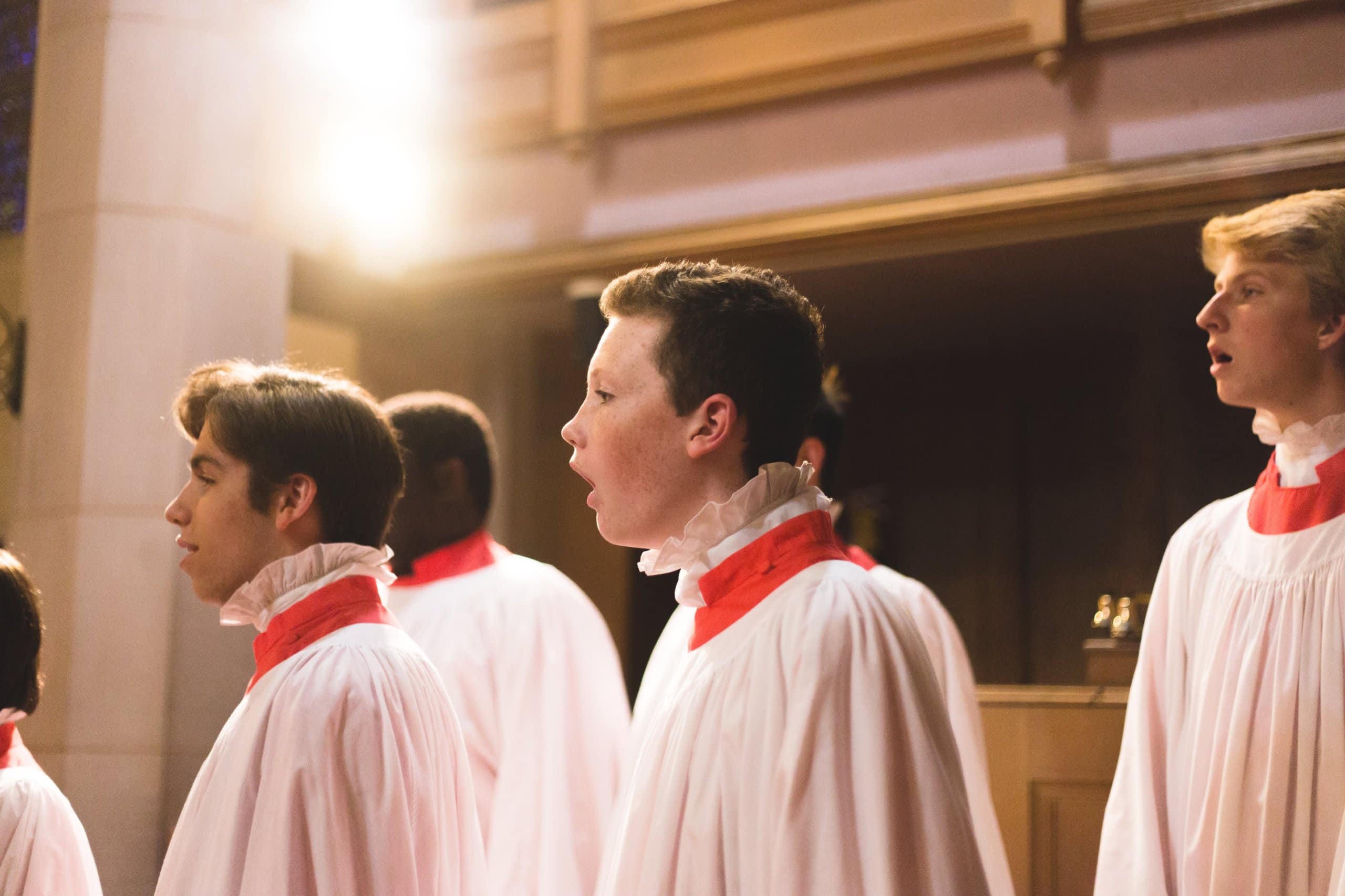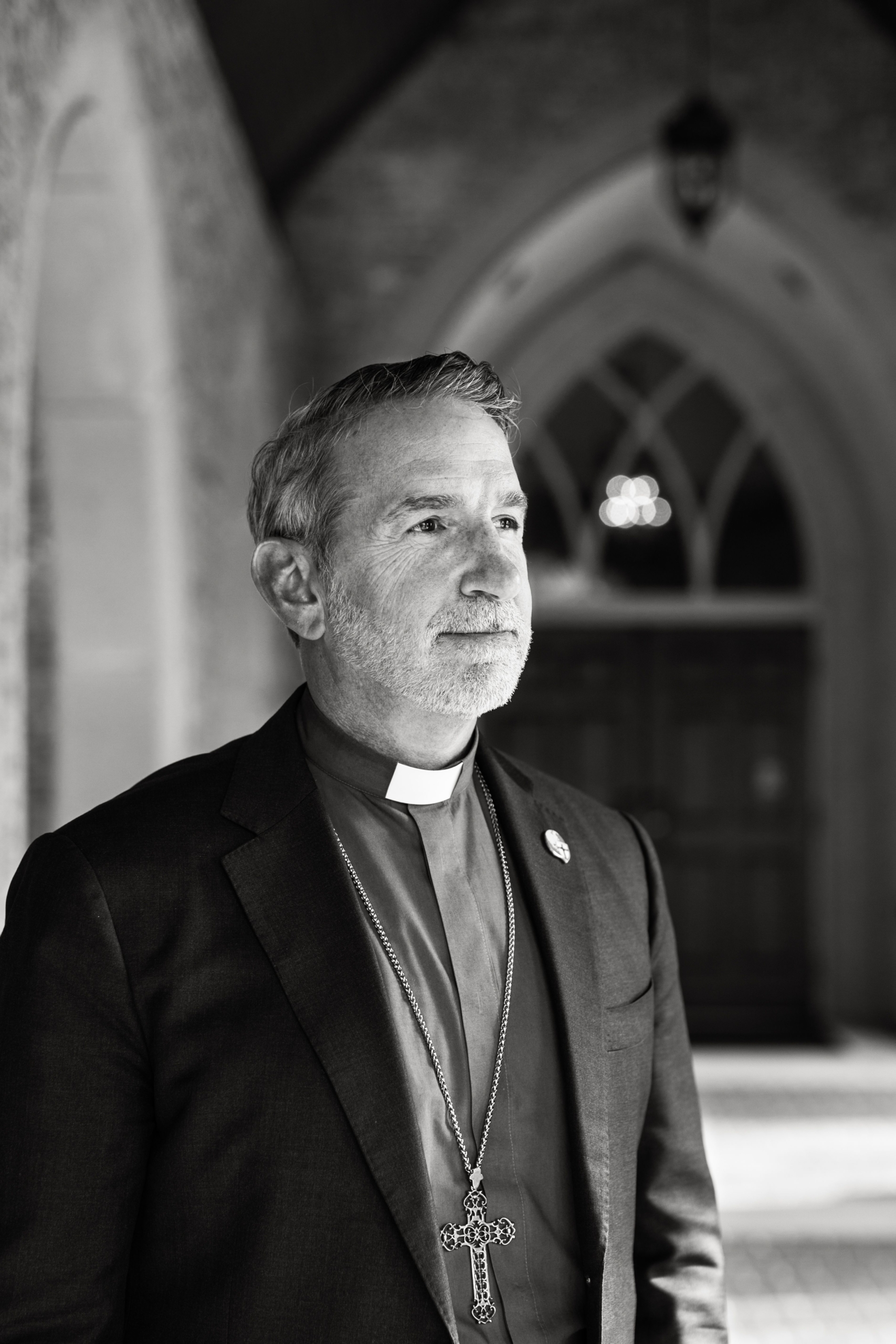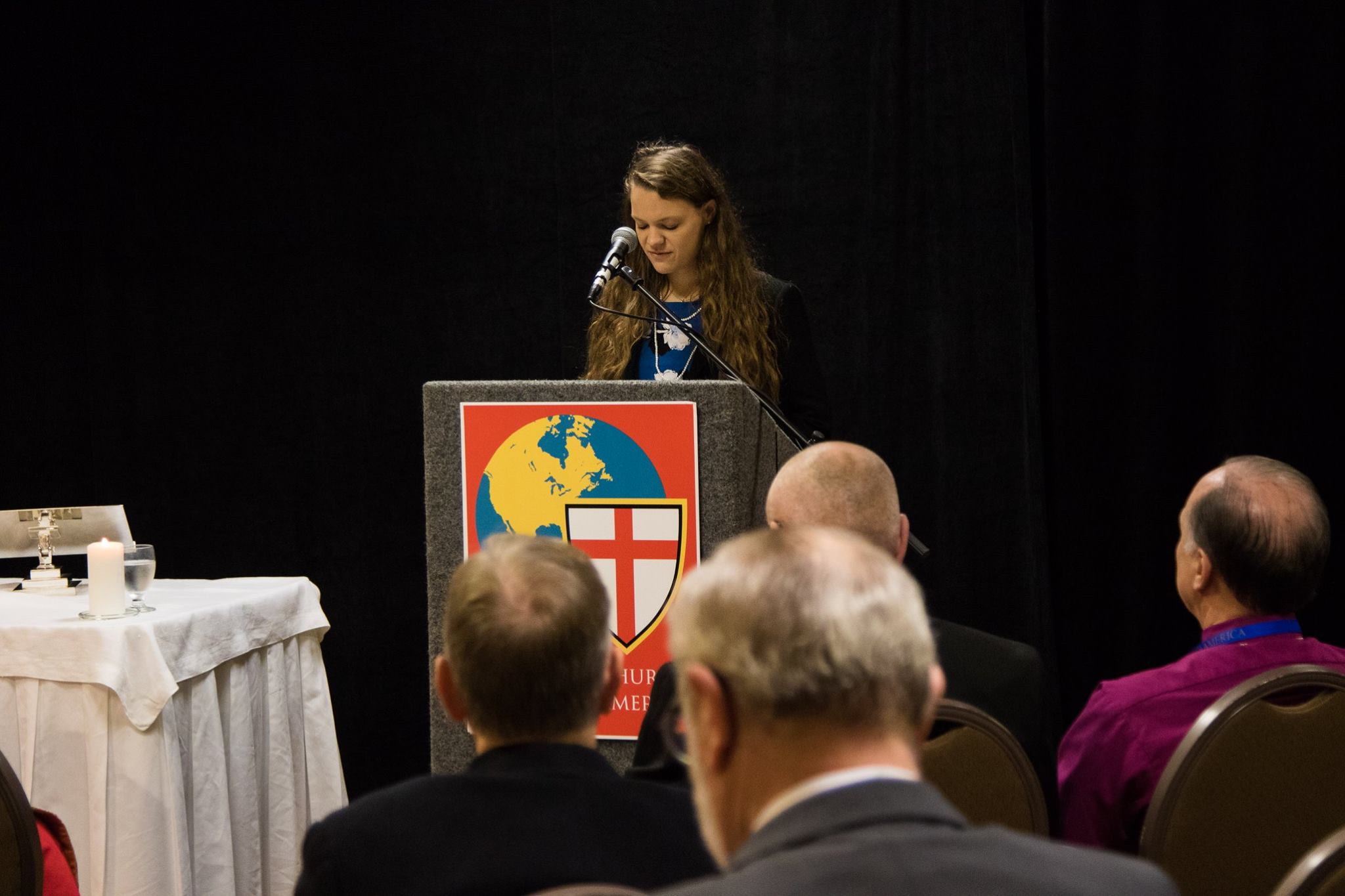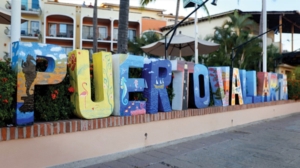
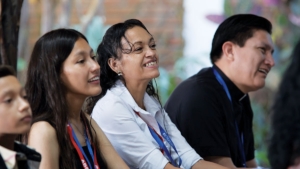
“This is the first time for this deanery to be hosting,” said The Right Rev. Steven Tighe, bishop of the Diocese. “The people are just so gracious, relational, andhospitable.” But this warm welcome and hospitality is just the beginning for what appears to be an Anglican church getting hotter and growing in Mexico.

Meredith Omland, a missionary at the Iglesia del Gran Pastor in Fresnillo, Mexico said, “[Synod] was exciting because most Mexicans in the Diocese could come and be a part of it, since most of them do not have visas to attend anything in the United States. For these guys and my congregation, it was exciting for them to feel like they were a part of something bigger, as opposed to just a little congregation in the middle of nowhere.” Meredith further explained, “It was also a good opportunity to come and get a sense of what it means to be part of the Anglican community as well. There’s an interesting dynamic between Mexico and the U.S. They [Mexicans] appreciate a lot of what goes on in the States, but a lot of times they are only receiving [from the States]: receiving missionaries and receiving funds. Having a chance to be here in Mexico for a Synod and hosting, meant they were giving and serving.”
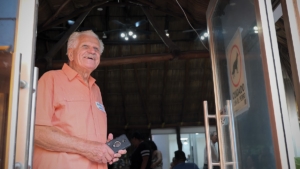 The deanery can trace its roots to the sailboat, Snowbird, drifting into the Puerto Vallarta harbor in 2001 with Father Jack Wehrs, Sr. at the helm. Searching for warmer waters than his San Diego home and a bit of relaxation, Jack simply invited fellow boaters by VHF radio to join them for Eucharist on their sailboat. They moved to a larger boat offered to them as the group quickly grew to 70 people. When the owner sold the boat, they knew they needed to move to land. They rented a condominium and Iglesia Anglican Puerto Vallarta (Anglican Church Puerto Vallarta) was formally established. It grew even more, forcing them to find a more permanent home building. God provided through creative financing, right as the Puerto Vallarta real estate demand began to take off. The palapa (thatch) roofed church that ended up hosting this Synod has an international feel as tourists from all over the world are drawn to it: “Retirees and vacationing clergy come down to lay on the beach, but get bored, looking for a place to worship and a church doing real outreach in the community,” said Jack. “We get people from all kinds of denominations represented here; we preach Jesus Christ and avoid getting caught up in politics.”
The deanery can trace its roots to the sailboat, Snowbird, drifting into the Puerto Vallarta harbor in 2001 with Father Jack Wehrs, Sr. at the helm. Searching for warmer waters than his San Diego home and a bit of relaxation, Jack simply invited fellow boaters by VHF radio to join them for Eucharist on their sailboat. They moved to a larger boat offered to them as the group quickly grew to 70 people. When the owner sold the boat, they knew they needed to move to land. They rented a condominium and Iglesia Anglican Puerto Vallarta (Anglican Church Puerto Vallarta) was formally established. It grew even more, forcing them to find a more permanent home building. God provided through creative financing, right as the Puerto Vallarta real estate demand began to take off. The palapa (thatch) roofed church that ended up hosting this Synod has an international feel as tourists from all over the world are drawn to it: “Retirees and vacationing clergy come down to lay on the beach, but get bored, looking for a place to worship and a church doing real outreach in the community,” said Jack. “We get people from all kinds of denominations represented here; we preach Jesus Christ and avoid getting caught up in politics.”
When he first went to Diocesan Synod meetings, he noticed that the Mexicans and Americans tended to sit separately. He noticed that it started to get better over the years, “but now at this one, it’s hard to tell who was from where by their seating- -Mexico or the U.S.–we are becoming like one family.” Jack also attributes a lot of the unity at this Synod to housing most of the participants in one facility and feeding them together under the palapa roof of their church.
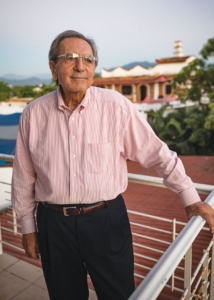 “Mexico finally feels united to us, which is so cool.” said Gus Haddad, the Director of Mission/Finance/Operations for the Anglican Diocese of the Southwest. Gus is also excited about the expansion of the church on both sides of the border, Albuquerque, New Mexico and Juarez and Puebla, Mexico.
“Mexico finally feels united to us, which is so cool.” said Gus Haddad, the Director of Mission/Finance/Operations for the Anglican Diocese of the Southwest. Gus is also excited about the expansion of the church on both sides of the border, Albuquerque, New Mexico and Juarez and Puebla, Mexico.
Gus continued, “Bishop Steven is on board with what we are doing in developing missionaries who are planting churches.” One of the missionaries Gus referred to is in Juarez and the other in Puebla, Mexico.
Archbishop Foley Beach attended the Synod and helped in the ordination of several priests and a deacon, “All them are involved in church planting. One of the great things we are seeing here [in Mexico] is the new church plants and people hungry for the gospel,” he said.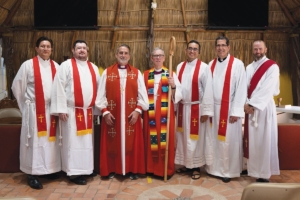
Rev. Isai Valenzuela Lopez is a bi-vocational minister in Juarez and was ordained to the priesthood during the Synod. He teaches half-time at Christ for the Nations seminary and is planting an Anglican church. “There are not many Anglican churches in Juarez at the moment, but the field is ripe for the harvest so establishing a mission is critical,” Isai said.
Rev. Dr. Joel Rene Gonzalez Garcia, is a former doctor from Cuba and has been working as a missionary with 12 pastors in the Puebla, Mexico area. The pastors, from Lutheran, Pentecostal, Reformed, and even Ukrainian Orthodox backgrounds are finding Anglicanism very appealing. “The historical aspect to Anglicanism is beautiful and they enjoy being a part of a bigger, longer history,” Joel explained. “Theologically it is more flexible and bearable than others, but they also like the structure of ac- countability. And then others like the liturgy. I had one couple say to me a few Sundays ago, ‘I am a nominal Roman Catholic, but I never knew what Anglicanism was until now. If this is Anglicanism, I tell you, you should be ready to expand the venue we are at because people will be flocking to attend the services.’”
Gus noted that, “Joel is such a wonderful, charismatic leader who was even taught by John Stott in England.” Joel observed that, “Some Mexicans say that it [Anglicanism] is too similar to Roman Catholicism, and I tell them, ‘Yes there are some similarities but it actually draws from the best of both traditions, Catholic and Protestants.’” He sees that people often comment on how they like the beauty of combining Bible readings and prayers of intercession, but also a bit of spontaneity. “We are actually creating a Mexican Anglicanism. We cannot expect them to be the same as the Anglo-Saxon, American way, so our Anglicanism will probably be more colorful, maybe a bit more spicy…you know, like Mexico!”
There appears to be no cooling on the vision for Mexico within the Diocese, but this energetic vision reflects the reality happening in the field. From the windswept central plateau of Fresnillo, to the industrious engine of Puebla, and the bustling border cities like Juarez, God appears to be at work in the largest Spanish-speaking country in Latin America. Whether it be through unique beginnings on a sailboat or through a growing seminary, the uniting leaders of the Anglican Diocese of the Southwest echo Gus’ words, “People say, ‘Ah, come on Gus, really tell us the truth, you know you couldn’t have done all of that. And the truth of the matter is, we could not, but God has and he gets all the glory.’”